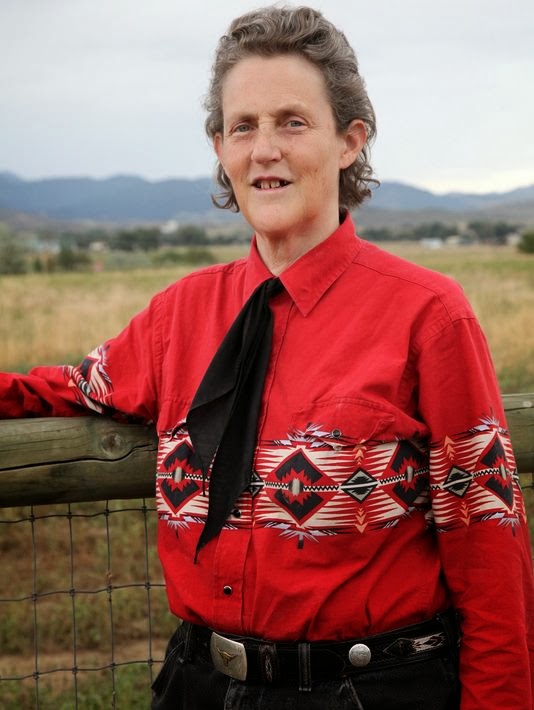The story of Temple Grandin, the woman diagnosed with autism at the age of 2 who went on to earn
her doctorate in animal behavior, is remarkable because it is so unique.
That is, unless you ask her.
Grandin, who will be speaking at two different events on the Monterey Peninsula this week, is challenging the way the world views people with autism by saying her success is far from unique.
“Half of Silicon Valley’s got mild autism, they just avoid the labels,” Grandin said.
Grandin, who inspired an Emmy-award-winning movie, will be giving a talk about the strengths of autistic minds Friday at the Hyatt Regency Monterey. She will discuss how these strengths can be identified, cultivated and turned into career paths. Her mother, Eustacia Cutler, will also talk about the stresses of raising an autistic child and the importance of education.
Grandin, 66, will also be speaking about animal behavior this week at the EcoFarm Conference at the Asilomar Conference Grounds in Pacific Grove. By taking into account the natural behavior of cattle,
Grandin was able to improve livestock handling practices, making them more humane.
It is important that parents catch autism symptoms early and learn how to help autistic children develop their strengths, Grandin said. For example, some may struggle with verbal communication, but excel at math or art. With the proper education, parents can better help their autistic children develop, she said.
Some may even find a career that perfectly suits their distinctive skills, as she and others have.
“Einstein would be labeled autistic today,” she said. “Steve Jobs was probably on the spectrum.”
Autism is not simply a disorder that people have or do not have, Grandin said. It is a spectrum, meaning cases can range from mild to severe, and that each case has different needs.
“I’m getting very concerned that some of these kids on the milder end aren’t learning skills like how to work and how to keep a job,” she said. “These kids need to learn job skills.”
Autism spectrum disorders, which include Asperger’s syndrome, stem from unusual brain development. A variety of risk factors can contribute to a child’s autism, but some evidence suggests that the most important are faced before birth, according the Centers for Disease Control and Prevention.
Grandin said that severe cases of autism can be recognized in children as young as 2 or 3.
“If you’ve got a 3-year-old who’s not talking, you’ve got problems,” she said.
Symptoms of milder autism cases are often more subtle. They may go unnoticed until elementary school, when a child will be uncomfortable or awkward in social situations, Grandin said.
“I knew people in college who were probably on the spectrum. They were just called geeks or nerds before,” she said.
Parents should seek help in engaging autistic children, whether their cases are severe or mild, Grandin said. In milder cases, children could develop social skills by offering to walk dogs or by volunteering at science centers, she said. In more severe cases, the focus might be more basic and stress language or how to take turns in games.
“The worst thing you can do,” she said, “is nothing.”
Grandin and Cutler are speaking as part of a conference hosted by Future Horizons, Inc., with help from the San Andreas Regional Center. Beth Aune, a licensed occupational therapist, will also be speaking about how to create an inclusive classroom for autistic students.
Read the whole story at MontereyHerald.com






